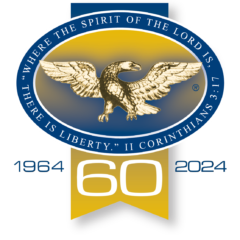In addition to the Noah Plan curriculum and many lectures, courses and teacher training resources, FACE has produced a number of self-teaching courses that are suitable for high school students.
The Welfare State course: The Biblical and Constitutional View on Poverty and Welfare
Romans 13 delineates the role of government as a “punisher of evildoers.” Our founders understood this and strictly limited the powers of the federal government as they drafted the Constitution. They did not see government as a “provider” but knew God designed us to provide for ourselves (II Thessalonians 3:10). They also knew, based on I Timothy 5, that the “safety net” was the family, and for those with no living relatives or family capable of assisting, it was the church. Topics of this four lecture course include: General Overview of the US Constitutional Order and System: The Nature of the Declaration of Independence as the Charter of the Nation and the Rise of Federalism with the US Constitution; Rise of the Welfare State: Misconstruction of the General Welfare Clause; Rise of the Administrative State: The Origin of the Federal Budget and the rise of Administrative Law; The Nature of Property and its Relationship to Liberty of Conscience: Moral Duties versus Legal Duties, Private Charity versus Public Welfare. 8 hours, taught by Dr. Gai Ferdon.

Free Men and Free Markets course: The Biblical View of the Economy
Do you know what the Bible teaches concerning economics? This five lecture course will give you a Biblical understanding of how man satisfies his material needs, how the market system works, how the free market differs from socialism, how government and economics intersect and how the Bible answers severe economic problems like poverty and injustice. 10 hours, taught by Dr. Max Lyons.

American Education: How Do We Get Out of This Mess?
Session one: Historical Educational Role of Pastoral Leadership in the American Colonies discusses the significant educational role of the church in colonial American history in promoting ‘holy commonwealths’ and ordered liberty.
Session two: Brief History of Education Policy in the Early American Republic: Constitutional Issue of Liberty of Conscience and Limited Civil Authority details jurisdictional issues regarding the role of the civil magistrate in religious/liberty of conscience and institutionalized education. Topics include Virginia’s religious liberty debates relative to Patrick Henry’s A Bill Establishing a Provision for Teachers of the Christian Religion (December, 1784), James Madison’s Memorial and Remonstrance Against Assessments in Support of Religion (July, 1785), and Thomas Jefferson’s Virginia Statute for Religious Freedom (January, 1786). The nature of the First Amendment to the US Constitution is discussed along with specific Congressional debates relative to the role of civil government in education.
Session three: Creation of National Education Laws and Institutions in the United States highlights the rise of US education laws after WWII, including the National Defense Education Act of 1958, Elementary and Secondary Education Act of 1965, creation of the Department of Education in 1979, No Child Left Behind Act of 2001, Race to the Top and ED Recovery Act of 2009, Common Core State Standards Initiative of 2009.
Session four: Policy Prospects Relative to Education explores national and state education policy solutions relative to privatized education, school choice, tax credits, and school vouchers, as well as significant Supreme Court education cases impacting private education initiatives. This session also includes a challenge to pastors relative to legal issues surrounding the pulpit and politics given the interpretive impact of the Johnson Amendment of 1954. 6 hours, taught by Dr. Gai Ferdon.

The Seven Principles of Liberty
The course, The Seven Principles of Liberty consists of eight two-hour lectures, PowerPoint presentations used for each lecture and 29 supporting documents.
What are the Seven Principles of Liberty? These basic, Biblical principles are the pathway to restore and maintain our Constitutional liberty. Today, if we would preserve both liberty of conscience and civil liberty for every individual in America, we must base our convictions in every issue on the principles that built our American Christian Constitution.
Liberal pundits most often sway public opinion by debating issues. However, Christians can once again win the day by learning to present the principles of liberty because principles always trump issues. This is the pathway forward to restore our nation to truth and life.
These Seven Principles of Liberty are based in three foundational ideas:
- How the character of America is formed in the Christian home, the Christian church and the Christian school
- How the property of conscience is the end and purpose of government
- How the study and embodiment of basic Christian constitutional principles can be delegated to every aspect of the individual’s spheres of self-government: home, business, school, social and political circles
You will be become an influencer, able to readily defend our liberty and restore light to our nation
16 hours of teaching are presented by Dr. Carole Adams, Dr. Max Lyons, Dr. Gai Ferdon, Dr. Rodd Rodriguez and Gary Porter.

The Bible and the Constitution Course
This course documents, in ten lessons, the vital role of the Bible in the forming of the United States of America. The Bible has been our textbook of civil, religious, economic, and educational liberty, producing our Christian constitutional Republic. The Bible and the Constitution is a distillation of the major ideas in The Christian History of the Constitution by Verna Hall and Teaching and Learning America’s Christian History by Rosalie Slater. Speakers include Dr. Max Lyons, Dr. Gai Ferdon, Gary Porter, and Dr. Rodd Rodriguez

